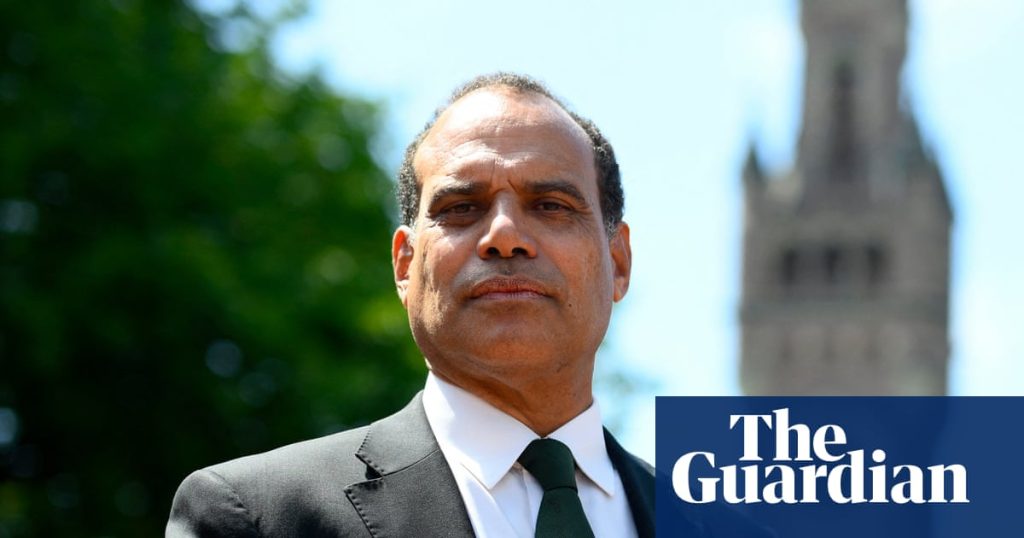Vanuatu is working on securing a UN vote to turn a landmark ruling on the climate crisis by the international court of justice (ICJ) into concrete political action that will fight the influence of the fossil fuel industry and protect the globe from environmental catastrophe.
In an effort spearheaded by the tiny Pacific island nation, the ICJ issued a rare unanimous advisory opinion in July, which clarified that all states are required under international law to protect the climate, prevent further harms and have a duty to cooperate.
That legal duty to tackle the climate crisis extends far beyond the 2015 Paris agreement, which Donald Trump withdrew the US from on his first day back in office, and any breach of this duty leaves states open to claims of reparations including compensation, the court found.
“We are on the frontline in the Pacific but no country, not even the US, is insulated from climate change, and we’re doing this on behalf of everybody,” said Ralph Regenvanu, Vanuatu’s minister of climate change.
“Our main effort now is building an architecture outside of Cop [UN climate talks] using tools like the ICJ advisory opinion, to try and influence the process from outside and force states to comply with their obligations under international law.”
Regenvanu added: “Every year we leave the Cop depressed, but will begrudgingly continue to participate because if we’re not at the table we’ll be on the menu. But I don’t think it is reformable.”
Regenvanu’s comments come after Trump used his speech on Tuesday at the UN general assembly to call the climate crisis a “con job” and make thinly veiled threats against countries backing renewable energy projects, which he is dismantling in the US while boosting fossil fuel production.
The production and use of fossil fuels are driving the climate crisis, which is turbocharging deadly extreme weather including heatwaves, hurricanes, drought and wildfires across the US – none of which were mentioned in Trump’s climate denialist rant at the UN on Tuesday.
In stark contrast, Vanuatu, an archipelago located east of northern Australia whose 330,000 inhabitants, culture, food sources and land are facing existential threats from the climate crisis, has a long history of leadership in climate diplomacy.
Vanuatu began calls for a loss and damage fund in 1992 and which was finally established at the 2023 Cop in Dubai, and was among the first countries to call for the recognition of ecocide as a fifth crime against humanity under the Rome statute. It was also among the first backers of the fossil fuel non-proliferation treaty and then led the charge on the ICJ case after a group of law students lobbied the government in 2019.
The ICJ judges found that 1.5C is a legally binding non-negotiable limit and all states are obliged to implement evidence-based measures to cut greenhouse gas emissions to curtail global heating and protect the climate system.
Fossil fuels are causing widespread harm to human health, ecosystems, the oceans and the climate, and government support for the ongoing production and consumption of oil, gas and coal through subsidies and licenses may ‘“constitute an internationally wrongful act which is attributable to that state”, the advisory opinion found.
“The fossil fuel industry has captured everything, from politics, to the media, and general discourse. It is the power of the fossil fuel industry that is the central power in the current world dynamic” and the biggest obstacle to tackling the climate crisis and implementation of the ICJ ruling, according to Regenvanu.
The fossil fuel industry spent at least $445m in the last US election cycle to influence US politicians, especially Trump and Republicans. Since winning reelection and taking control of both Houses, Trump has slashed environmental regulations while his signature legislative package gives oil and gas firms $18bn in tax incentives.
Trump’s actions are not limited to domestic policy.
In recent months, the US, which is the largest historical greenhouse gas emitter, has rescinded climate finance commitments that it owes, according to international law, to countries harmed by its dependence on fossil fuels. Trump has also withdrawn from key international forums including the UN climate talks and the International Maritime Organization (IMO), threatening to retaliate against international efforts to decarbonize shipping and transition to renewable energy sources.
Amid unprecedented hostility from the US and widespread geopolitical tensions, Vanuatu is now working on a resolution to the UN that will likely be tabled after Cop30 in Belen, Brazil.
The resolution is unlikely to be passed unanimously like the March 2023 Vanuatu resolution which led to the ICJ case, but is expected to gain the support of a large majority of countries and would be an important step in the ICJ findings becoming workable obligations.
“We’re not getting anywhere with consensus-based decision-making because a few states can hold everyone else to ransom and stop new environmental safeguarding conventions like the plastic treaty, the universal levy on shipping and at Cop. The only place that’s kind of safe from that is the UN general assembly, where it’s a majority vote,” Regenvanu told the Guardian.
“In certain forums it’s better the US isn’t there. We have less obstruction and less resistance in the room, so we can get more done … But look, every month there is another disaster in the US, people are already dying here. Eventually the day of reckoning will come for the US, and sooner or later something has to change.”

